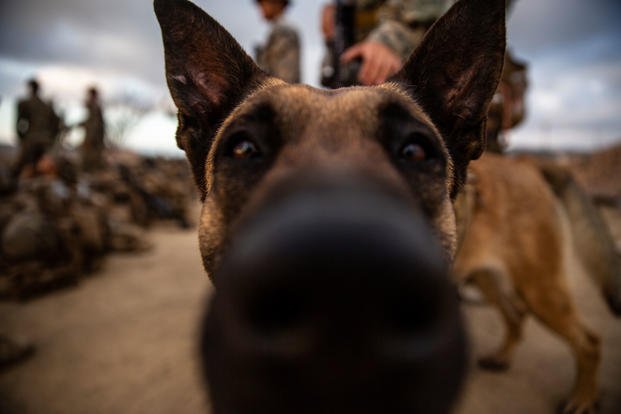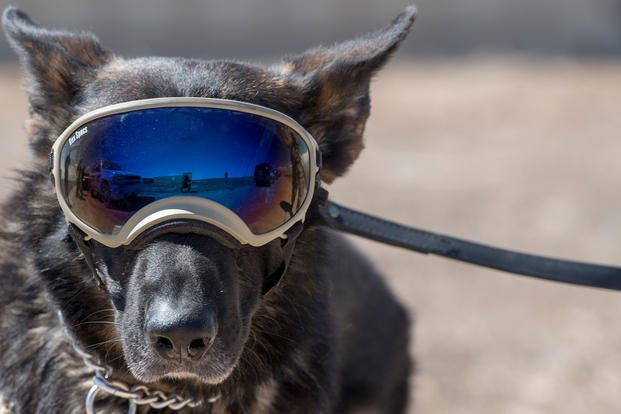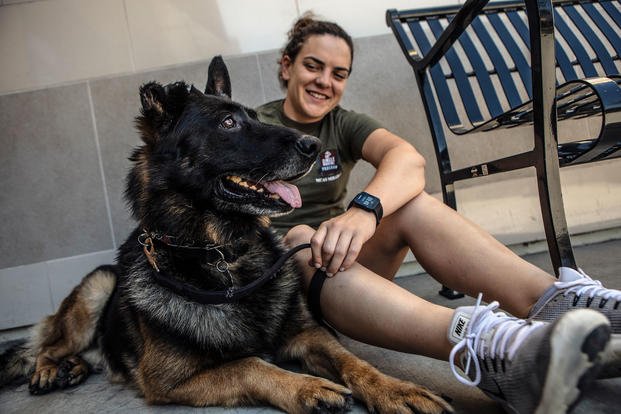Who can resist the temptation to adopt a retired military working dog?
The Air Force is once again looking for people -- military members or otherwise -- who want to adopt retired military working dogs.
Take a second to just look at this face.

Air Force officials at Joint Base San Antonio-Lackland (JBSA) issued a news release last month highlighting the need for adoptive parents for retired dogs. They said that, while there is demand to adopt puppies that didn't make the cut for the program, there is less interest in the older dogs, even though they are exceptionally well trained and could probably rescue you from a well or warn you about any nearby bombs.

Adopting a retired military working dog can be a long process, they warned, and can take up to two years.
Related:
- These 5 Dogs of War Took It to America’s Enemies
- 13 Photos of Military Working Dogs Being Awesome
- The 9 Biggest Myths About Military Working Dogs
- Check Out These 17 Awesome Photos of Military Working Dogs at War
- A Brief History of Dogs in Warfare
Interested potential dog parents must fill out paperwork and answer questions about where the dog will live and how it will be cared for.
And not just anyone can adopt one of these four-legged heroes. To be eligible, applicants must have a six-foot fence, no kids under the age of five, and no more than three dogs already at home. They also have to list a veterinarian on the application, have two references and provide a transport crate.

Interested in adopting a retired military working dog? You can contact officials at mwd.adoptions@us.af.mil or call 210-671-6766.
Update: Officials at JBSA said due to the popularity of the program they are no longer accepting applications. Applications may reopen in late 2021, they said.
Keep Up with the Ins and Outs of Military Life
For the latest military news and tips on military family benefits and more, sign up for a free Military.com membership and have the information you need delivered directly to your inbox.
















